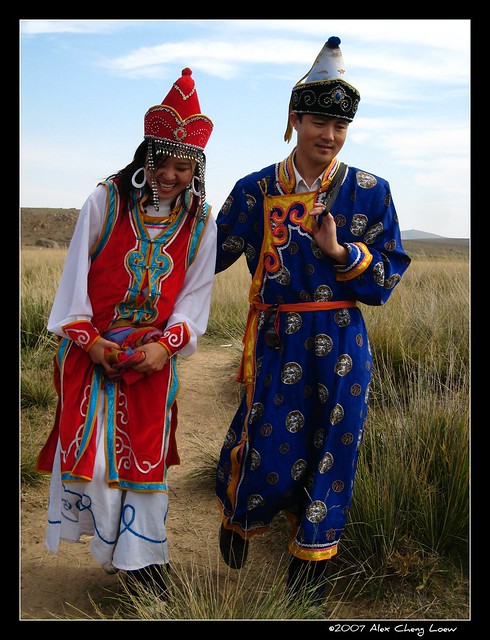In Mongolian culture, unions between a man and a woman
are instigated by the couple themselves as opposed to being arranged in any
form or fashion. With a matchmaker to act as a middleman (ChinaCulture.org
2010), the groom to be will send many presents to the home of his bride. The
gifts will include meats, skins, wines, fruits, animals, tea, herbs, etc. If
each present is accepted and an acceptable bridewealth is paid, the bride’s
parents will accept the proposal and a date is set.
When the groom arrives, he and the parents of the bride
go through an intricate ritualized exchange of gifts. They exchange clothing,
wine, foods, an entire roasted sheep is presented at one point. This is an
interesting ritual to point out, the fact that there is both a bridewealth and
a dowry that get exchanged. Normally it is one or the other.
Mongolian
marriages are “contractual agreement between families rather than a religious
ceremony” (countrystudies.us/Mongolia). There is little gender stratification
in Mongolian society, although men and women both partake in clear-cut
activities that are deemed gender specific. Come the day of the wedding, the
two families move their camps closer together and they put on a massive party.
The bride plays the perfect hostess, serving the matchmakers, her husband’s
family, her own family, and all of their friends that have come to celebrate.
There are as many celebrants as the newlyweds can afford to feed.
Mongolians don’t have a set caste system, but they do
tend to marry within their class. The Mongolians that continue to raise animals
out on the steppes have a habit of marrying other herders. Business people
typically marry other business people (countrystudies.us/Mongolia).

No comments:
Post a Comment